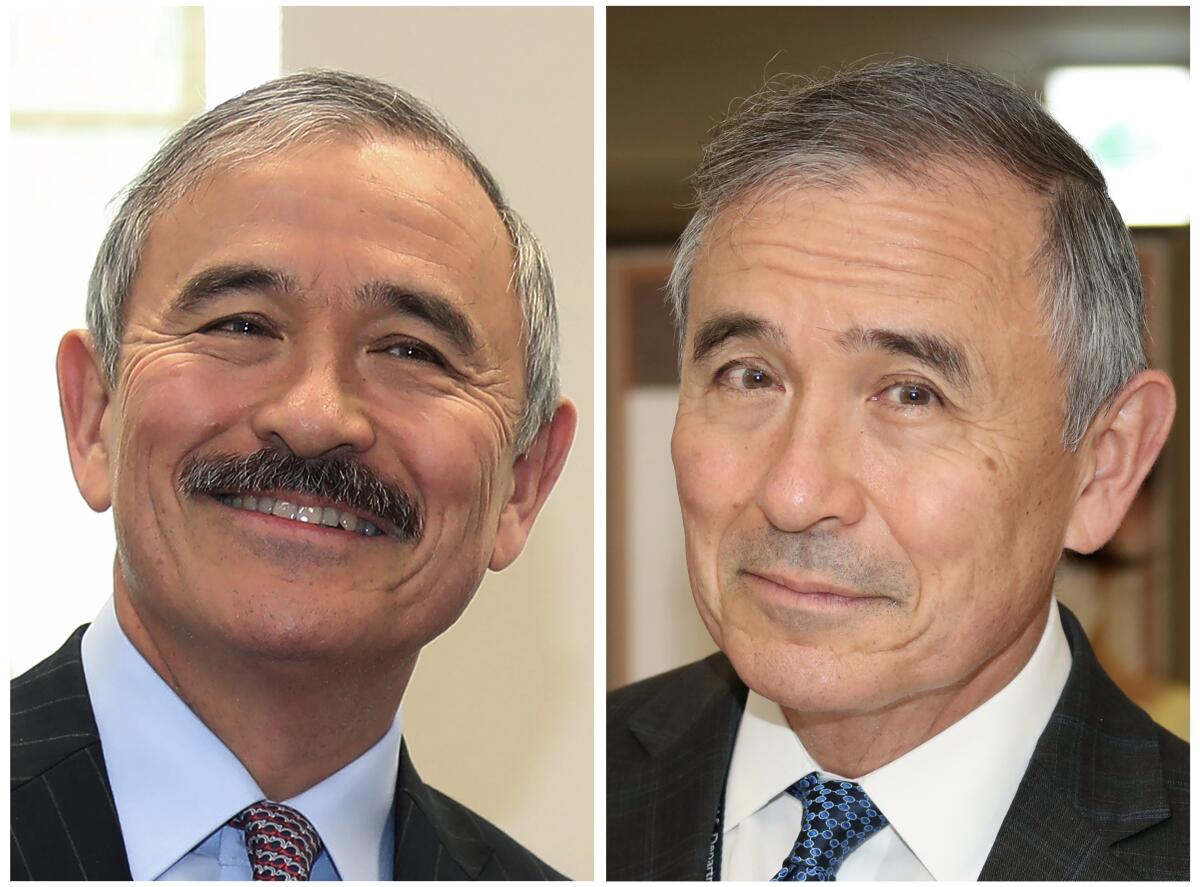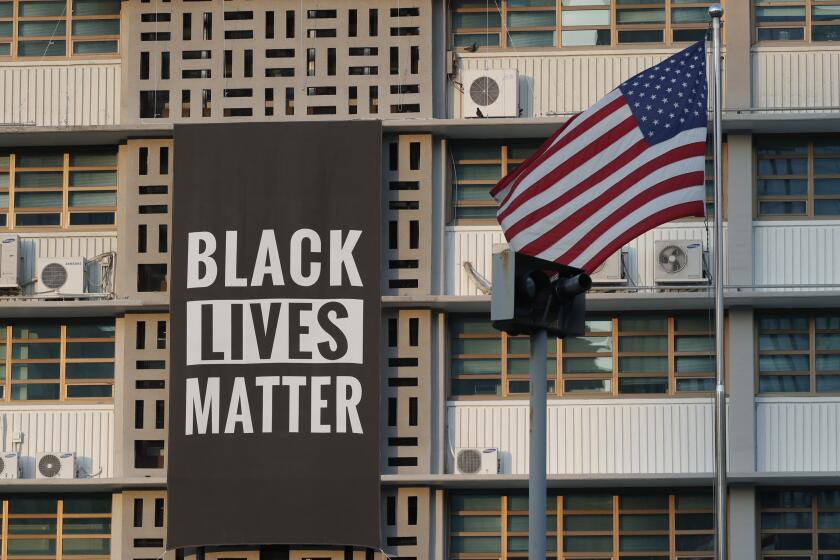U.S. ambassador shaves off mustache that drew controversy

SEOUL — Harry Harris’ hairy upper lip is no more, putting to rest a mild controversy over the facial grooming of the U.S.’ top diplomat in South Korea.
Harris, the U.S. ambassador to Seoul, shaved off his mustache, saying it was too uncomfortable to keep while wearing a coronavirus mask during South Korea’s notoriously hot summer.
His bushy upper lip had drawn criticism from local media and a small number of online commentators, who said his mustache resembled those worn by colonial Japanese governors during the country’s brutal rule of the Korean Peninsula from 1910 to 1945.
Harris, a retired U.S. Navy admiral who became ambassador in July 2018, acknowledged in January that his mustache had become “a point of some fascination here.” He also said he was being criticized for his ethnic background as a Japanese American.
“Glad I did this,” Harris tweeted Saturday after his visit to a barbershop in Seoul. “For me it was either keep the ‘stache or lose the mask. Summer in Seoul is way too hot & humid for both. #COVID guidelines matter & I’m a masked man!”
His embassy tweeted a video that showed Harris bumping elbows with a masked barber and gesturing for a shave. He playfully rolled his eyes as he lay back on a leather chair as the barber shaved his mustache and trimmed his eyebrows.
“Wow, I haven’t seen this face in years!” Harris exclaimed after washing his face and applying lotion.
A large Black Lives Matter banner has been removed from the U.S. Embassy building in South Korea two days after it was raised there.
In an interview last year with the Korea Times, an English-language daily, Harris said he would keep his mustache unless someone convinced him it was “viewed in a way that hurts” the relationship between Washington and Seoul.
The newspaper said Harris’ mustache “has become associated with the latest U.S. image of being disrespectful and even coercive toward Korea.”
Relations between South Korea and Japan sank to their lowest point in decades last year as they feuded over trade issues, wartime history and military cooperation.
South Korea’s own alliance with the United States has also become shaky under the administration of President Trump, who has openly complained about the costs of maintaining the 28,500 U.S. troops stationed in South Korea to protect against North Korean threats. The allies have failed to sign a new cost-sharing agreement after the last one expired at the end of 2019.
More to Read
Sign up for Essential California
The most important California stories and recommendations in your inbox every morning.
You may occasionally receive promotional content from the Los Angeles Times.











